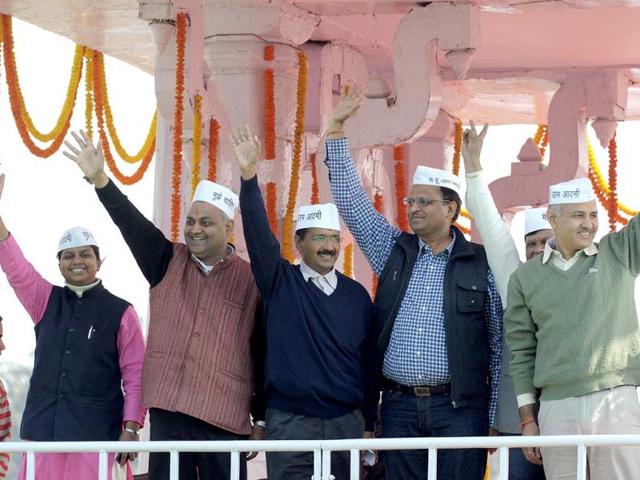Top executives join AAP to serve people better
Arvind Kejriwal’s call for clean politics is attracting several senior corporate executives and businessmen into its fold.
Arvind Kejriwal’s call for clean politics is attracting several senior corporate executives and businessmen into its fold.

Captain Gopinath, founder of the erstwhile Deccan Airways; V Balakrishnan, who recently quit as board member of Infosys; Meera Sanyal, former India CEO of Royal Bank of Scotland; and Samir Nair, former CEO of STAR India have all joined the fledgling Aam Aadmi Party (AAP).
All of them have one goal – public service through a party, which is riding high on the agenda of cleansing the system of corruption.
"AAP has given us an opportunity to convert the hopes and aspirations of Annaji (Hazare) into a workable system," Gopinath told HT.
"They (AAP) have revolutionised politics in this country. I’m fascinated with it," Balakrishnan said after joining the party on New Year’s Day.
"Interactions with people at all levels of AAP have given me the comfort that this is a party driven by ethical values," Sanyal told HT.
"Many people want to get involved with public life but think politics is dirty. AAP has given them hope and they want to be part of the movement that is bringing about change," BS Nagesh, vice chairman of retail chain Shoppers Stop, added.
Sociologist Dipankar Gupta, however, sees this trend as "enchantment amid disillusionment." Added sociologist Shiv Vishwanathan: "Overall, the trend of corporate executives, technocrats and entrepreneurs joining AAP is a positive sign for India and its politics."
However, some people remain skeptical. "This is an unfortunate development. People from the corporate world can never serve the people of India. They are joining (AAP) only to influence policies in favour of the rich," said CPI leader Gurudas Dasgupta.
AAP leader Prashant Bhushan disagreed. AAP’s rising corporate support base shows the party’s growing acceptability among all sections of the society and rejection of the politics practiced by mainstream political parties, he said.





